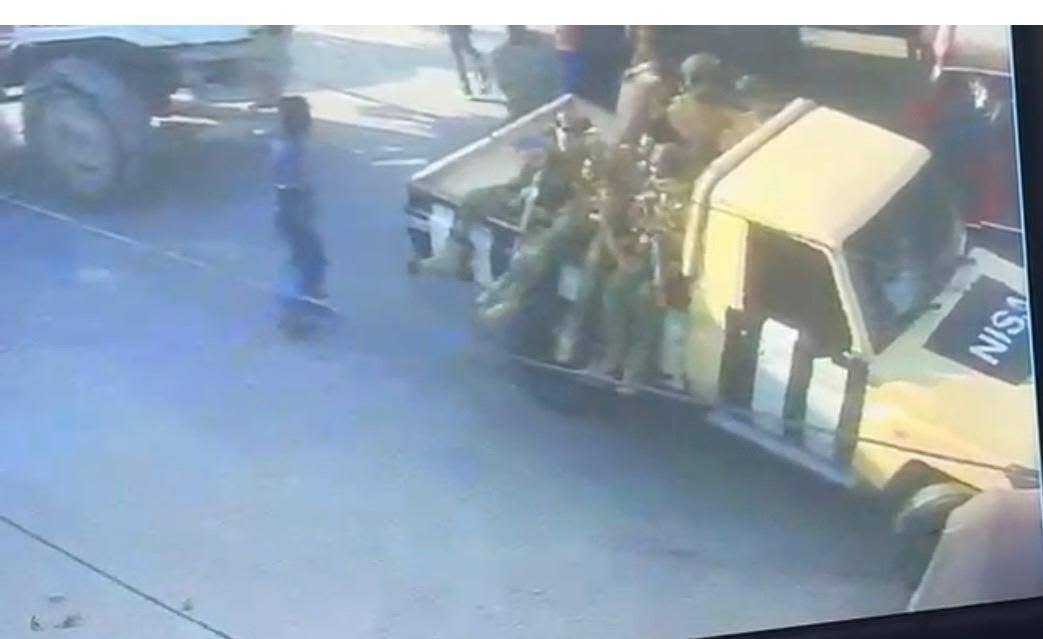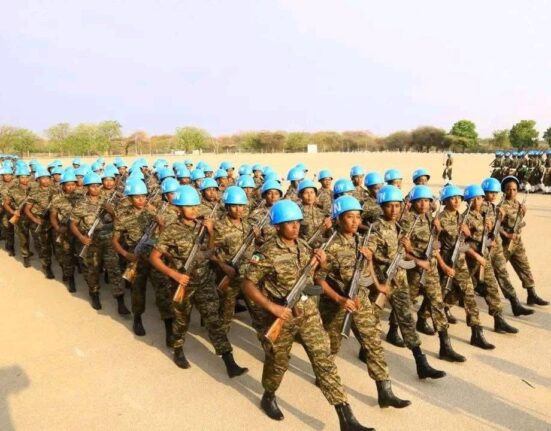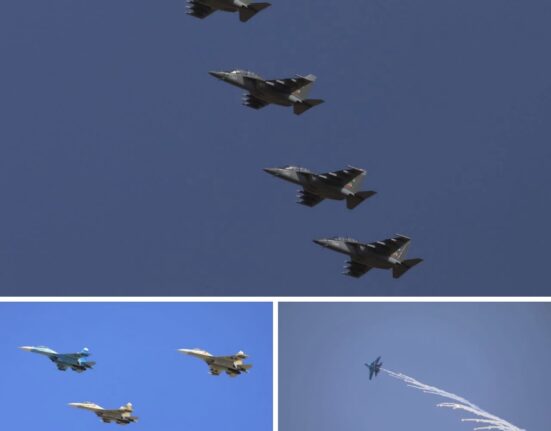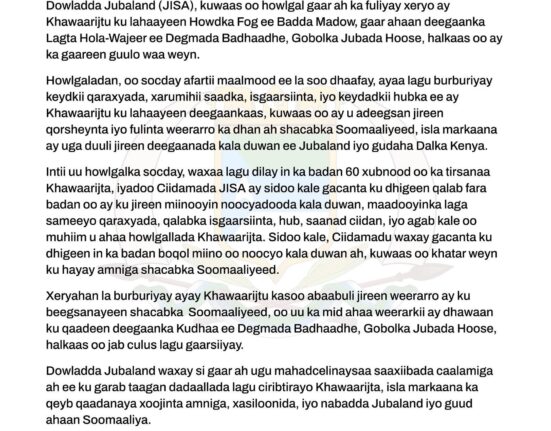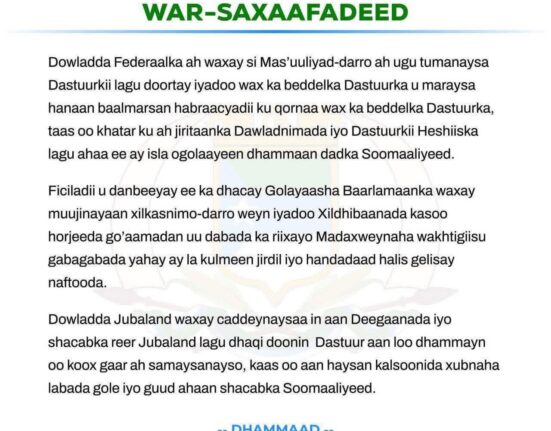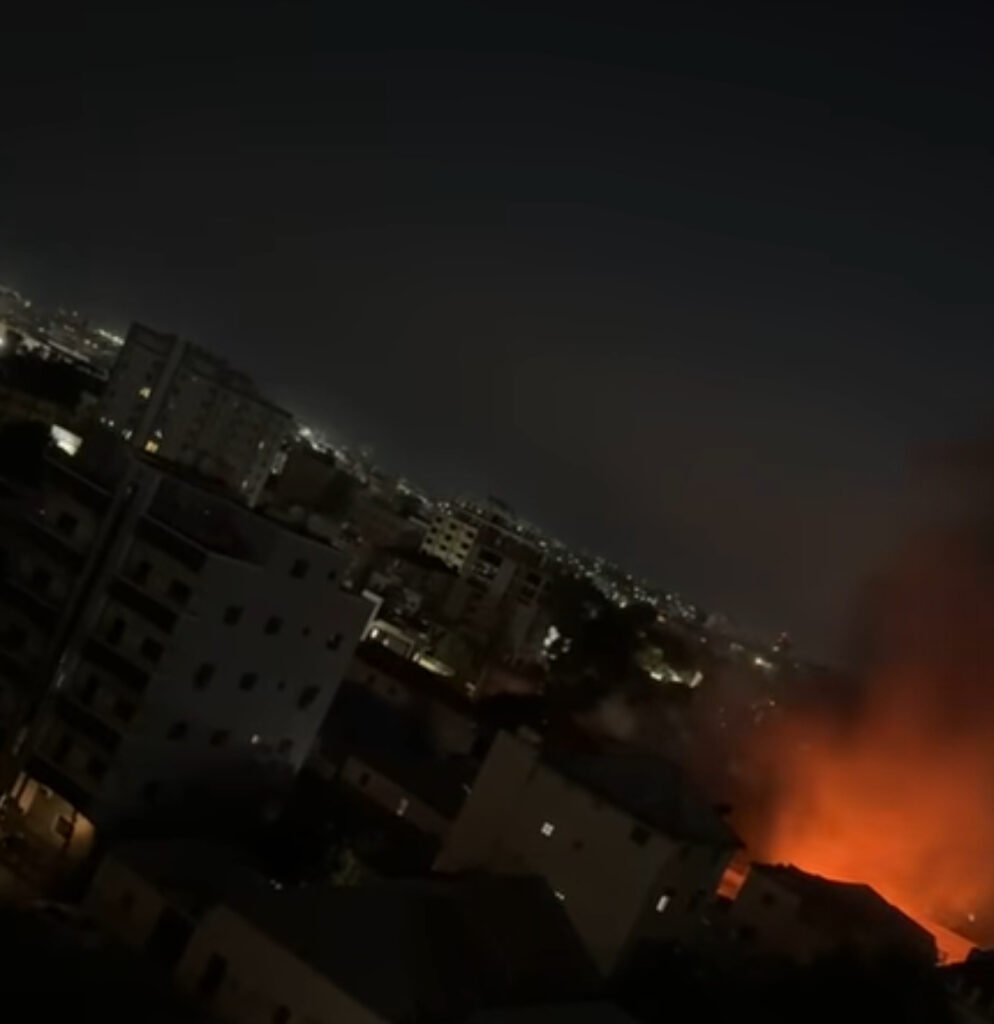
Mogadishu, October 5, 2025 (HornCurrent) — The deadly Al-Shabaab attack on the Jilacow Investigation Center in Mogadishu has reignited debate over Somalia’s federal security strategy and the leadership of President Hassan Sheikh Mohamud.
While security forces ultimately repelled the assault and killed all seven attackers, many analysts say the incident underscores deeper failures in national security coordination and leadership. The fact that militants disguised as security personnel could penetrate multiple checkpoints in the capital raises serious concerns about operational discipline and command structure within the federal forces.
Sources within the security sector told HornCurrent that the infiltration tactics used in Saturday’s attack reflect not only Al-Shabaab’s adaptability but also ongoing dysfunction in federal command oversight. “The government has been prioritizing political confrontations with federal member states instead of focusing on security reforms,” said one senior officer who requested anonymity.
Over the past year, the federal government has repeatedly been accused of deploying elite units, including the Turkish-trained Gorgor and Haramcad forces, for political purposes — particularly in operations against the Jubaland administration and opposition groups — rather than concentrating on counterterrorism operations.
Security experts argue that this politicization has weakened the morale and effectiveness of national forces. “When the federal army is used as a political instrument, its professionalism erodes,” said a Mogadishu-based analyst. “The attack on Jilacow is not just a terrorist operation — it’s a symptom of a leadership model that has failed to separate politics from national defense.”
Observers also note that the President’s centralization approach and ongoing tensions with regional administrations have undermined joint security coordination — a key pillar in Somalia’s fight against Al-Shabaab.
The attack comes just a day after federal troops, supported by airstrikes, liberated several Al-Shabaab-held areas in Lower Shabelle, including Awdheegle, Raqayle, Shaangarre, and Malabo. Analysts say that while such victories demonstrate operational capacity, they are often followed by retaliatory attacks due to poor follow-up stabilization and intelligence-sharing among federal and regional units.
Critics have called for a comprehensive review of President Hassan Sheikh’s national security policy, arguing that his administration has failed to deliver the promised unified command structure and effective civilian oversight.
“The Jilacow attack is not an isolated event — it is the fruit of years of fragmented security policy, politicized command, and leadership weaknesses at the top,” a political commentator told HornCurrent.
In the aftermath of the attack, the government has vowed to tighten control over military vehicles and uniforms, citing new enforcement of the Capital Weapons Control Law (Law No. 123) and related national security regulations.
However, unless the federal leadership rebuilds trust and cooperation with Federal Member States, experts warn that Somalia’s counterterrorism efforts will continue to suffer from internal divisions and leadership paralysis.
— HornCurrent News Analysis Desk, Mogadishu


